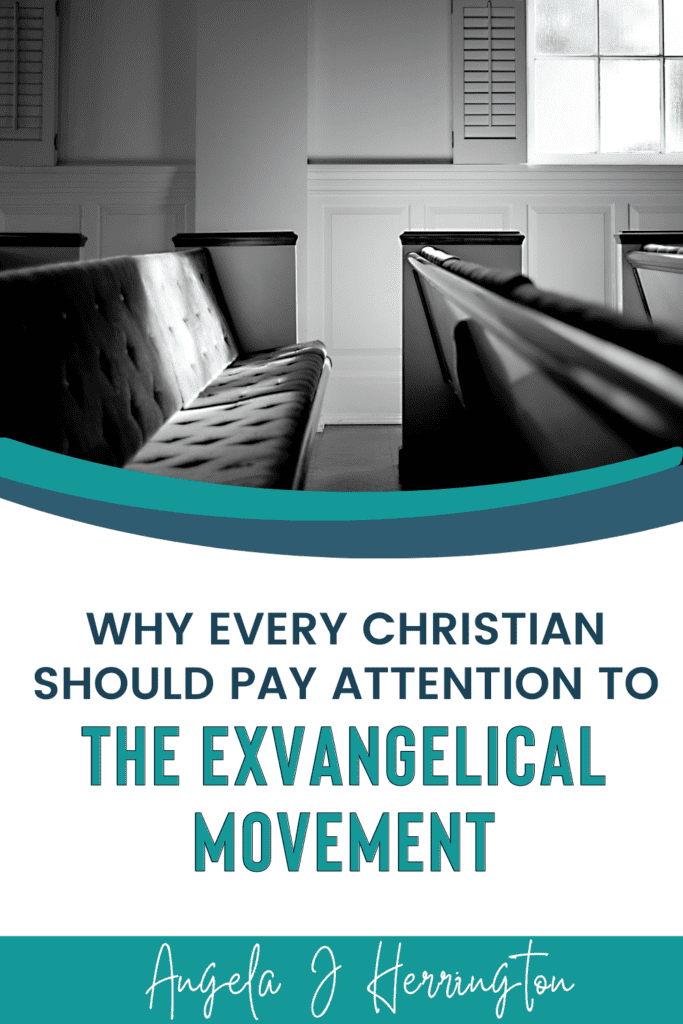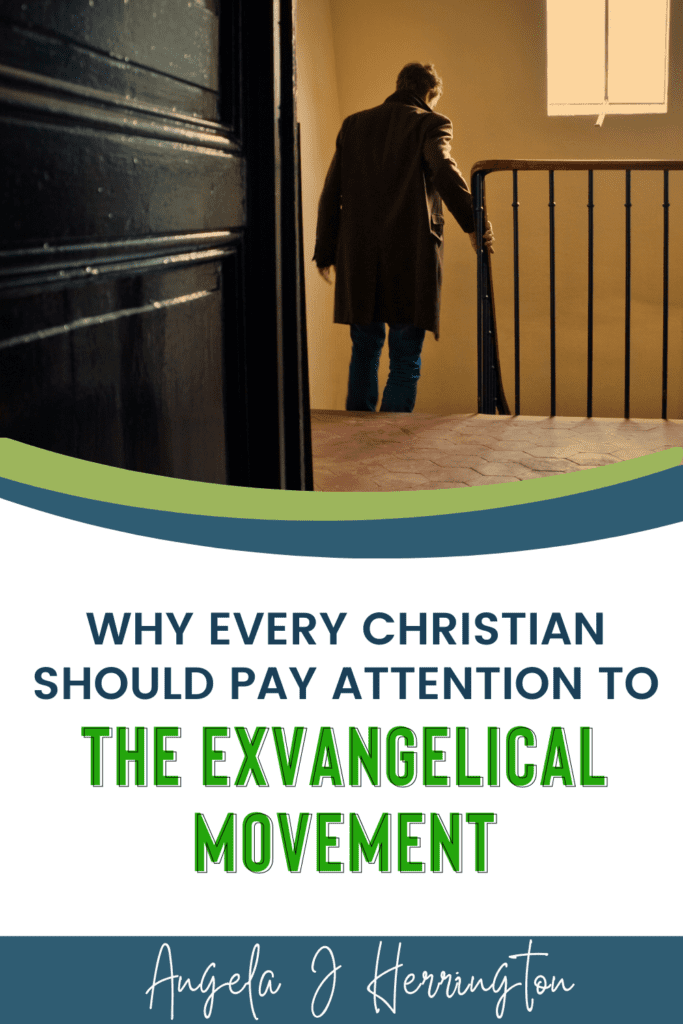There’s something rotten in Denmark and exvangelicals are just over it,
with good reason.
Perhaps you’ve seen the reports from conservative research group Barna that 1 in 3 practicing Christians stopped attending church during the pandemic. A March 2021 article from Religion in Public stated 4-5.5% of the US population can be categorized as Exvangelical.
It’s clear Exvangelicals are leaving the church and they’re being really
transparent about who is to blame.
Their complaints are tightly-focused on the unhealthiest aspects of Evangelicalism: racism, homophobia, misogyny, and xenophobia, just to name a few. The elevation of former president Trump to conservative Christianity’s favorite mouthpiece was the last straw from many who were holding out hope that the church could pivot towards Christ instead of the legalism, dogma, and rhetoric that plagued Trump’s campaign and presidential term.
Some exvangelicals have attempted to deconstruct from toxic religion only to decide traditional Christian faith wasn’t worth fighting for because it wasn’t something they wanted to be part of anymore. Others skipped deconstruction and went straight to no longer wanting anything to do with the church.
More than ever, people are leaving the church, but should Christians even care?
The answer: of course. Every Christian should be paying attention to the exvangelical movement because their departure is in response to centuries of church abuses and un-Christ-like doctrines.
The majority of Christians acknowledging those who are leaving the church as part of have focused on one of two options:
- Denying the exodus is problematic by discrediting those who are leaving by calling them heretics or cowards bent on ignoring God’s will. This is the response favored by most fundamentalists and conservatives. The same people who deny climate change and chant “all lives matter” in the face of racial brutality prefer to blame the exvangelical for leaving.
- Christians who lean more liberal in their political views respond by saying if the church would just shift towards more progressive doctrines people wouldn’t leave. They propose that stepping away from harmful doctrines would stop the church from falling apart and reduce or eliminate the harm done by millions.
If anything, the two sides arguing about how the church should respond to exvangelicals and deconstructors is pushing more people away.
A quick google search on the topic will show that these responses aren’t new and they don’t seem to be helping. Denying the church has problems or trying to shift the political leaning of the doctrines won’t reduce the number of people in the exit lane.
Doubling down on legalist, fundamentalist doctrines or shifting the expression of Evangelical doctrines to the political left might “save the church” as we know it, but it won’t eliminate the power structure that favors the powerful. Like our political system swinging back and forth between two major parties, shifting to a progressive Christianity will just shift the power to a different set of highly-privileged people and continue to marginalize those who do not fit the new ideal.
Any attempt to preserve the church while shifting a few key doctrines won’t fix a religious system built on the back of centuries of genocide, enslavement of people of color, and marching in step with powerful political leaders
at the cost of people with less power.
Spoiler alert: Saving the church should never be our goal. This is precisely why people are leaving the U.S. church in droves and every Christian should be paying attention to the Exvangelical movement.
Like an abusive partner who greatly benefits from an imbalance of power, the Evangelical church has to stop denying the harm it’s doing before it can move into reconciliation and reformation.
So yes, every Christian should pay attention to the exvangelical movement with humility and openness. Every Christian needs to start by committing to curiosity and vulnerability. If you’re only in the conversation to defend the church or her actions, it’s not a conversation. It’s your attempt to convince someone to see things your way even if it means denying their own spiritual needs and pushing aside their own discernment.
Listen to the complaints and get really curious why there are so many similar stories of abuse and neglect at the hands of Christian individuals and organizations.
Then get really curious about what type of vine you are cultivating within your personal belief system and the structure of the church that keeps producing scandals, abuse, gluttony, and the systemic abuse of BIPOC. Sit with the evidence in front of you within the context of Matthew 7:15-20: “You will know them by their fruits.”
Every Christian should pay attention to the exvangelical movement because the trauma they’re leaving the church with is the fruit of the tree you’re defending.

Angela is a Faith Deconstruction Coach and host of The Deconstructing Faith Summit who helps people break free from toxic religious culture & empowers them to recover from #churchhurt. She has led online ministries for a decade, enjoys working with clients 1:1, in groups, and is a dynamic conference speaker. She’s a Lark’s Song Certified Life Coach who reaches thousands of people in 40+ countries each month on Facebook, IG, Twitter, Pinterest, and her blog.
She’s a firstborn, Enneagram 8, Gen Xer who loves to question everything. She holds a BA from Indiana Wesleyan and a Masters in Leadership from Wesley Seminary. Her graduate research project focused on leadership development and opportunities for Gen X women in the US church.
Angela and her unique online ministry are featured in Lyz Lenz’s 2019 book God Land: Story of Faith, Loss, and Renewal in Middle America. She has published articles in Hope for Women and HOPE is Now magazines. She has been featured in The New Republic, Publisher’s Today, and Religion News Service.
Her first book, Deconstructing Your Faith Without Losing Yourself, Will be published by Eerdmans in February 2023.
Angela is also a wife, mom to 5, and a proud resident of Marion, Indiana with her family when they’re not traveling the US in their RV.








